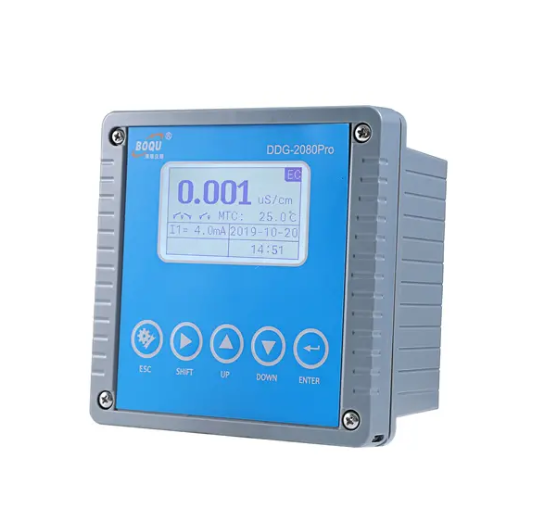In today’s rapidly evolving business landscape, industries across the board are placing greater emphasis on quality control and process optimization. One critical aspect that often goes unnoticed is water quality.
For various businesses, water is an essential resource used in production, manufacturing, and other operations. To ensure the best quality water for these processes, a Water Total Dissolved Solids (TDS) Meter is an indispensable tool.
In this blog, we will delve into the significance of water TDS meters for businesses and explore how they can be employed to measure, monitor, and ultimately improve water quality.
Understanding Water TDS:
What are Total Dissolved Solids (TDS)?
Total Dissolved Solids (TDS) refers to the cumulative concentration of dissolved inorganic and organic substances present in water. These substances can include minerals, salts, metals, ions, and other compounds. The TDS level is typically measured in parts per million (ppm) or milligrams per liter (mg/L).
Importance of Monitoring Water TDS
Monitoring water TDS is vital for businesses that heavily rely on water in their operations. Elevated TDS levels can lead to various issues, such as equipment scaling, reduced efficiency, and compromised product quality. By regularly measuring TDS, businesses can proactively identify water quality issues and take appropriate corrective actions.
The Role of Water TDS Meters:
How do Water TDS Meters Work?
Water TDS meters operate on the principle of electrical conductivity. When submerged in water, these meters pass a small electric current through the sample, and based on the conductive properties, they calculate the TDS level. Modern TDS meters are compact, user-friendly, and provide quick and accurate readings.
Benefits of Using Water TDS Meters for Businesses
- Optimizing Water Quality:
By measuring TDS regularly, businesses can ensure that water quality meets required standards, preventing equipment damage and enhancing overall efficiency.
- Cost Savings:
Detecting high TDS levels early on allows businesses to address water quality issues before they escalate, thus reducing maintenance costs and downtime.
- Regulatory Compliance:
Many industries must adhere to specific water quality regulations. Water TDS meters enable businesses to maintain compliance with these standards.
Applications of Water TDS Meters in Different Industries:
Water TDS meters find wide-ranging applications across various industries, where water quality plays a critical role in their processes. Let’s explore some of the key industries that benefit from the use of water TDS meters:
1. Food and Beverage
Water is a fundamental component of the food and beverage industry. TDS meters play a key role in ensuring the purity of water used in food processing, beverage production, and brewing, contributing to the taste, texture, and safety of the final products.
2. Manufacturing
In manufacturing processes, water is often used as a coolant, solvent, or cleaning agent. High TDS in water can lead to scaling and corrosion of machinery and impact product quality. Inline TDS meters enable real-time monitoring, ensuring that water used in manufacturing remains within acceptable limits.
3. Water Treatment and Wastewater Management
Water treatment facilities are tasked with purifying water for public consumption and other applications. TDS meters play an integral role in assessing the effectiveness of water treatment processes.
By measuring TDS levels before and after treatment, operators can determine the extent of purification achieved and identify potential issues in the treatment system. Additionally, TDS meters are valuable tools in monitoring wastewater discharge, ensuring compliance with environmental regulations, and minimizing the impact on surrounding ecosystems.
Improving Water Quality Using TDS Meter Data:
Water TDS meters not only provide valuable insights into the current state of water quality but also offer crucial data for improving and maintaining water quality over time. By leveraging TDS meter data, businesses can implement effective strategies to enhance water quality ality and ensure its suitability for specific applications. Let’s explore some key ways in which TDS meter data can be utilized to improve water quality:
Identifying Water Treatment Needs
Water TDS meters not only measure current TDS levels but also provide valuable data for trend analysis. By tracking TDS variations over time, businesses can identify patterns and potential issues, enabling them to make informed decisions regarding water treatment and purification.
Implementing Water Treatment Solutions
Based on TDS meter data, businesses can choose appropriate water treatment solutions like reverse osmosis, ion exchange, or UV disinfection. These methods can effectively reduce TDS levels and enhance water quality for specific applications.
Regular Maintenance and Calibration
To ensure accurate readings, it’s essential to perform regular maintenance and calibration of TDS meters. This practice guarantees reliable data and enables businesses to address water quality concerns promptly.
Selecting the Right Water TDS Meter for Your Business:
Choosing the right water TDS meter is a critical decision for businesses aiming to improve water quality and optimize their processes. With various options available in the market, it’s essential to consider factors that align with your business requirements. One notable supplier that stands out in providing top-notch water TDS meters is BOQU. Let’s explore why BOQU is the best source for your water TDS meter needs.
a. Extensive Experience and Expertise
BOQU has earned a reputation as a trusted provider of water quality testing equipment, including TDS meters, for businesses across the globe. With years of experience in the industry, they possess a deep understanding of the challenges faced by different sectors and offer tailored solutions to meet specific demands.
b. Integration of IoT Technology
One of BOQU’s significant advantages is its integration of Internet of Things (IoT) technology with water TDS meters. By combining IoT capabilities, BOQU offers real-time and efficient monitoring solutions to its customers. With this advanced technology, You can remotely access and track water quality data, receiving instant alerts if TDS levels deviate from desired parameters.
c. Technical Support and Training
BOQU’s commitment to customer satisfaction extends beyond the sale of their products. They provide exceptional technical support and training to help businesses make the most out of their TDS meters. Whether it’s assistance with installation, calibration, or troubleshooting, BOQU’s team of experts is readily available to lend their expertise and ensure smooth operations.
Final words:
Water TDS meters are indispensable tools for businesses that rely on water for their operations. From agriculture to manufacturing, the ability to measure, monitor, and improve water quality with TDS meters offers numerous benefits, including increased efficiency, cost savings, and regulatory compliance.
By leveraging TDS meter data, businesses can make informed decisions, optimize processes, and ultimately contribute to sustainable water management practices. Investing in water TDS meters is a proactive step towards a more efficient and environmentally responsible future for businesses worldwide.
Post time: Jul-20-2023



